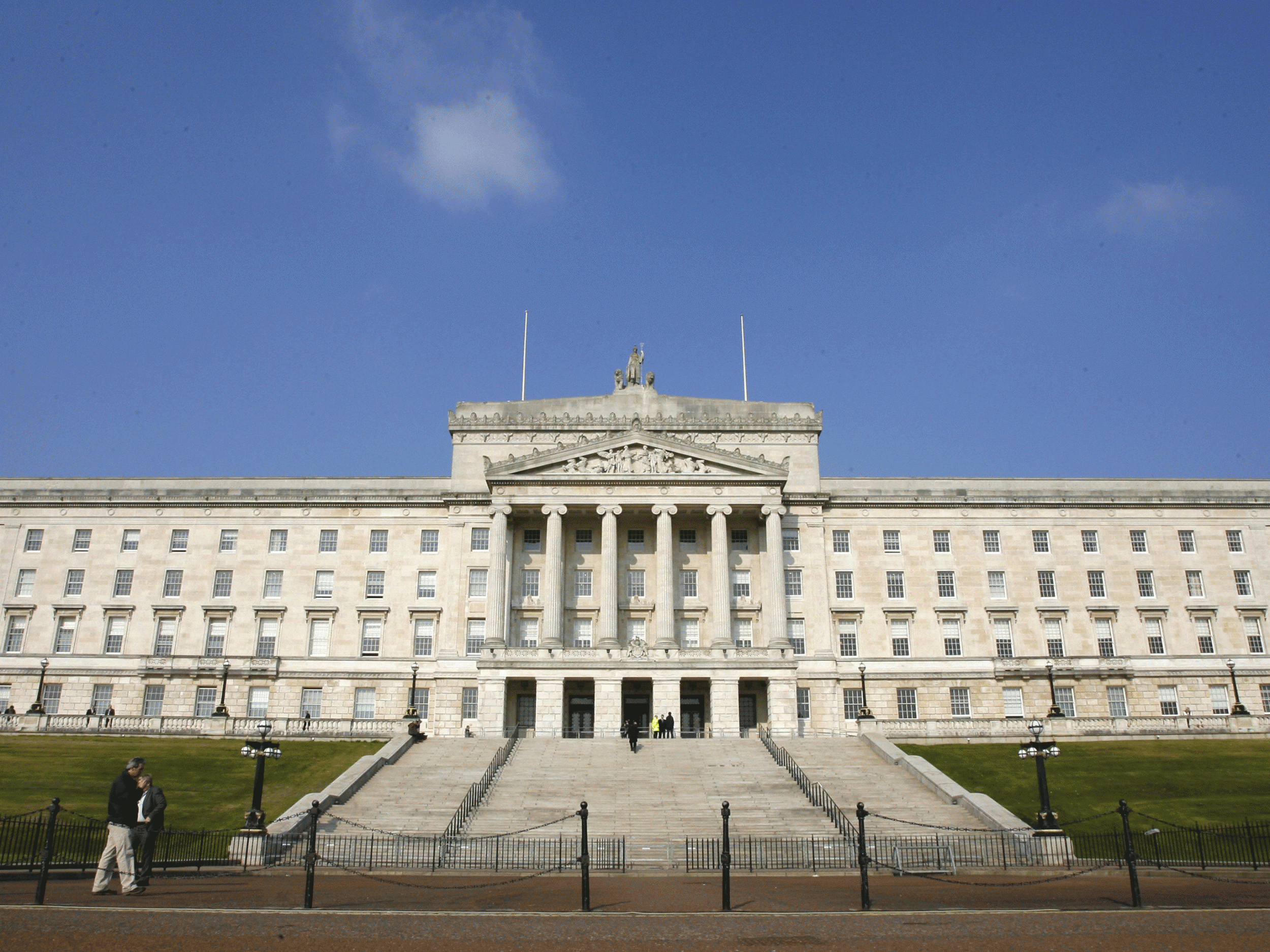Northern Ireland will suffer because of Brexit – but the mainland couldn’t care less
The appearance of the EU as faceless bureaucracy may have angered many English voters, but was a notable benefit when it came to posing as a neutral force in Northern Ireland’s complex community relations


Your support helps us to tell the story
From reproductive rights to climate change to Big Tech, The Independent is on the ground when the story is developing. Whether it's investigating the financials of Elon Musk's pro-Trump PAC or producing our latest documentary, 'The A Word', which shines a light on the American women fighting for reproductive rights, we know how important it is to parse out the facts from the messaging.
At such a critical moment in US history, we need reporters on the ground. Your donation allows us to keep sending journalists to speak to both sides of the story.
The Independent is trusted by Americans across the entire political spectrum. And unlike many other quality news outlets, we choose not to lock Americans out of our reporting and analysis with paywalls. We believe quality journalism should be available to everyone, paid for by those who can afford it.
Your support makes all the difference.Northern Ireland occupies a peculiar place in the UK, both geographically and conceptually. We’re a tiny corner of the country, the breadth of the Irish Sea away, with brisk accents, bewildering politics and a confusing constitutional status. When it comes to UK-wide politics and news, the Northern Irish are used to being sidelined; either forgotten about altogether or mentioned only as a rushed, apologetic aside beneath a paragraph on Scottish Independence.
For the most part, this is something we begrudgingly accept. However, in the case of Brexit, the arrogant recklessness with which Northern Ireland has been, and continues to be, treated is nothing short of terrifying. Since 23 June, Brexiteers’ ignorance of Northern Irish politics has spiralled from being merely insulting to actively dangerous.
As the only part of the UK to share a land border with another EU country, in the form of the Republic of Ireland, Northern Ireland should have been front and centre in Brexit discussions – yet hardly merited so much as a mention as various English men slugged it out between each other for both sides in the pre-referendum debates.
Question marks loom large over the future of the 310-mile-long frontier between Northern Ireland and the Republic of Ireland. It is still unknown how freedom of movement and free trade will be affected. Entire villages straddle the border between North and South, with families on either side now unsure if they will be blocked off from their loved ones. Many students from the North study at universities in the South, and now face uncertain futures over everything from tuition fees to their right to remain.
Any physical border would not merely be a practical inconvenience that could cripple business trade between the two and ruin the lives of families living with relatives on either region. The psychological impact of any border restrictions is impossible to overstate, less than two decades after the end of a bloody war over the constitutional status of Northern Ireland. Memories of military checkpoints and custom posts at the dividing line prior to the 1998 Good Friday Agreement continue in the memories of local communities and there is little appetite to return to them.
It recently emerged that the British Government is seeking to move UK borders into Ireland and require the Irish police to implement British immigration restrictions at Irish docks and airports. This not only makes a mockery of Leave campaign designs to “take back of control of our borders” through Brexit as it hands them to a foreign state, but also risks replicating the colonial attitude of Britain viewing the island of Ireland as an outhouse to do its bidding. The assumption that Ireland will take on the financial and administrative burden of policing British immigration policies to make Brexit run smoothly is a remarkably naïve and tone-deaf view.
In question too is the future of EU funding for cross-community projects between nationalist and unionist communities, known locally as “peace money”. Northern Ireland received almost £2.5bn from the EU in the last funding round – that money will now almost certainly cease. At no point did the Leave campaign appear to factor the burden on the British Government of plugging this funding gap when calculating the cost of EU membership. Even if Westminster does fund the projects after EU withdrawal, some projects may struggle for political reasons to accept money from British sources while they were happy to accept it from the EU, which is seen as a largely neutral body.
The appearance of the EU as faceless bureaucracy may have angered many English voters, but was a notable benefit when it came to posing as a neutral force in Northern Ireland’s complex community relations.
This weekend it also emerged the UK is considering cutting corporation tax for EU negotiations. This would be a major blow to Northern Ireland, which has been negotiating for years to get its own corporation tax cut to a lower rate in order to give it a competitive edge over Dublin and London. After prolonged and complex talks, it had finally received confirmation the rate could be cut by 2018. If the UK slashes its rate for negotiations, any benefits to Northern Ireland will in effect vanish. Yet again, Northern Ireland appears to have been considered at no stage in Brexit plans.
Above all, the biggest irony in Brexiteers’ chillingly arrogant ignorance of Northern Ireland is this: the Leave campaign was built on a case of the little man taking back sovereignty and control from faceless, ignorant institutions blindly enforcing policy from overseas. In sidelining and ignoring Northern Ireland in Brexit plans, they are embodying and amplifying those very attributes to parody-like proportions.
In the absence of any plans or due diligence from the Leave side, what this means for the stability of Northern Ireland’s peace process, politics and economic stability can only remain to be seen.
Join our commenting forum
Join thought-provoking conversations, follow other Independent readers and see their replies
Comments